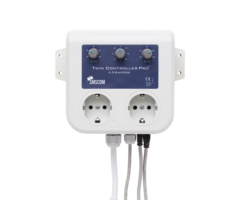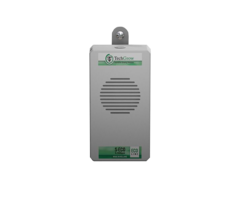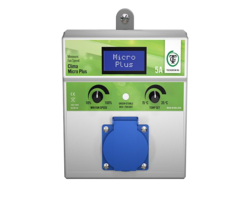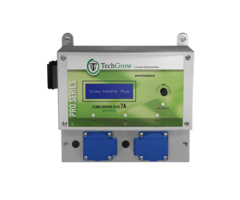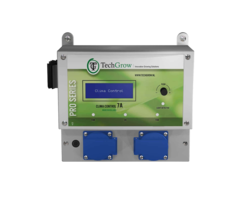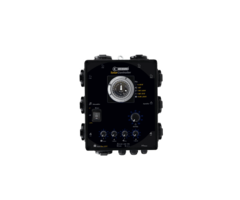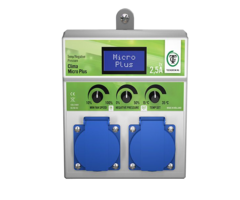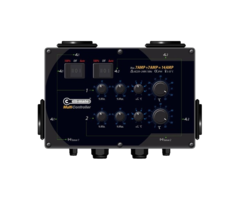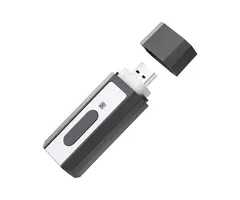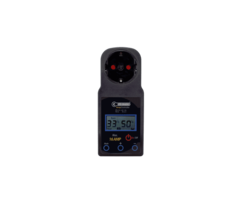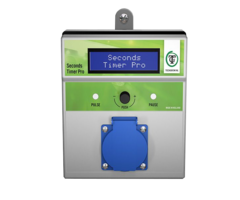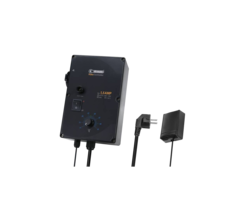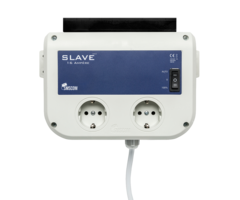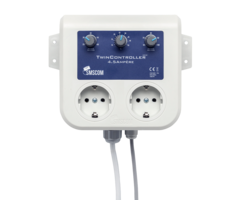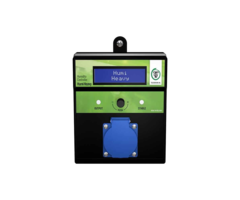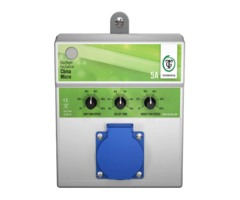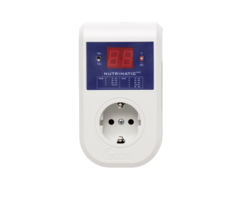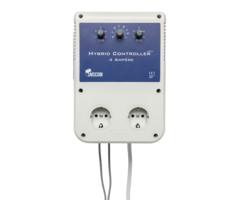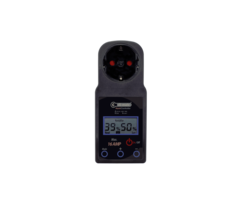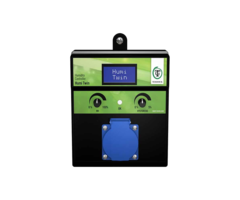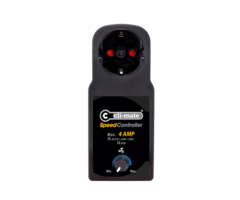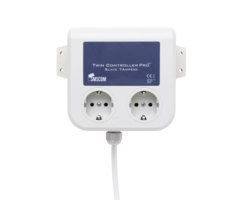Climate controller ~ Control your climate
Climate controllers in your cultivation: what are they and how do they work?
A climate controller is a device used in plant cultivation to control the climate in the greenhouse or grow tent. The climate controller can be used to control and adjust the temperature, humidity and air circulation in the greenhouse or grow tent. This allows growers to create the conditions best suited for the growth and flowering of their crop.
One of the most important functions of a climate controller is to maintain a constant climate in the greenhouse or grow tent. This is essential because crops are very sensitive to changes in temperature and humidity. If the climate in the greenhouse or grow tent is not constant, it can lead to poor growth and lower crop yields.
Different types of climate controllers
There are several types when it comes to a climate controller, including thermostats, hygrostats and fans. Thermostats measure the temperature in the grow room and turn on heating or cooling to maintain the desired temperature. Hygrostats measure the humidity in the grow room and automatically turn the humidifier or dehumidifier on or off to achieve the desired humidity level. Fans provide air circulation in the grow room, distributing temperature and humidity more evenly.
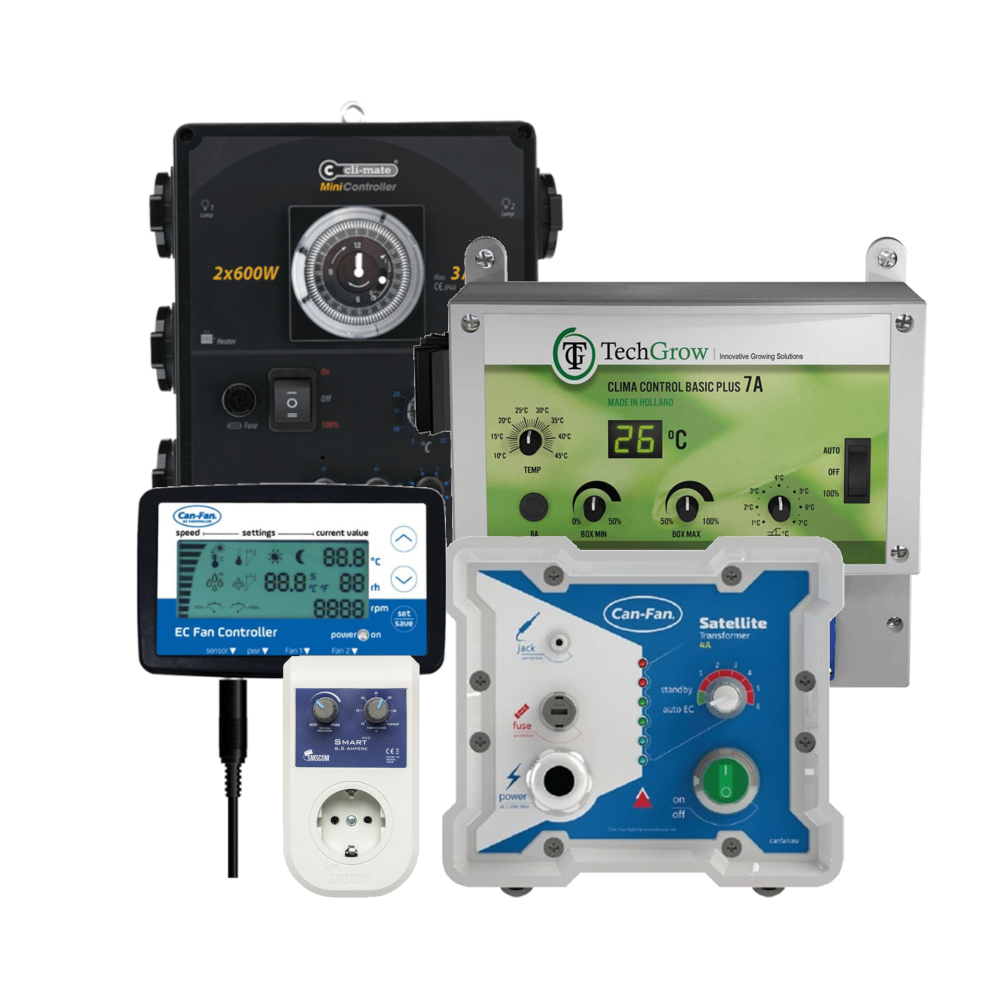
Essential for your grow
A climate controller is essential for modern plant cultivation because it allows the grower to precisely control and optimize conditions in the grow room. This can lead to higher crop yields and quality.
The use of a climate controller in plant cultivation is becoming increasingly important as climate change affects growing room conditions. By using a climate controller, growers can adapt to these changing conditions and maintain a constant climate for their crop.
In short, a climate controller is an important tool for modern plant cultivation. By using these controllers, growers can accurately control and optimize the conditions in the grow room, leading to higher crop yield and quality.
Climate controllers in your cultivation: what are they and how do they work?
A climate controller is a device used in plant cultivation to control the climate in the greenhouse or grow tent. The climate controller can be used to control and adjust the temperature, humidity and air circulation in the greenhouse or grow tent. This allows growers to create the conditions best suited for the growth and flowering of their crop.
One of the most important functions of a climate controller is to maintain a constant climate in the greenhouse or grow tent. This is essential because crops are very sensitive to changes in temperature and humidity. If the climate in the greenhouse or grow tent is not constant, it can lead to poor growth and lower crop yields.
Different types of climate controllers
There are several types when it comes to a climate controller, including thermostats, hygrostats and fans. Thermostats measure the temperature in the grow room and turn on heating or cooling to maintain the desired temperature. Hygrostats measure the humidity in the grow room and automatically turn the humidifier or dehumidifier on or off to achieve the desired humidity level. Fans provide air circulation in the grow room, distributing temperature and humidity more evenly.

Essential for your grow
A climate controller is essential for modern plant cultivation because it allows the grower to precisely control and optimize conditions in the grow room. This can lead to higher crop yields and quality.
The use of a climate controller in plant cultivation is becoming increasingly important as climate change affects growing room conditions. By using a climate controller, growers can adapt to these changing conditions and maintain a constant climate for their crop.
In short, a climate controller is an important tool for modern plant cultivation. By using these controllers, growers can accurately control and optimize the conditions in the grow room, leading to higher crop yield and quality.
Available in: 4.5A & 7A....
Available in: Minimum Speed | Min-Max Speed | Tem...
Availa...
Available i...
Available in: 2x7 Amp ...
Available in: 1.5 Amps & 2.5 Amps....
Available in: 4.5A & 7A....
Climate controllers in your cultivation: what are they and how do they work?
A climate controller is a device used in plant cultivation to control the climate in the greenhouse or grow tent. The climate controller can be used to control and adjust the temperature, humidity and air circulation in the greenhouse or grow tent. This allows growers to create the conditions best suited for the growth and flowering of their crop.
One of the most important functions of a climate controller is to maintain a constant climate in the greenhouse or grow tent. This is essential because crops are very sensitive to changes in temperature and humidity. If the climate in the greenhouse or grow tent is not constant, it can lead to poor growth and lower crop yields.
Different types of climate controllers
There are several types when it comes to a climate controller, including thermostats, hygrostats and fans. Thermostats measure the temperature in the grow room and turn on heating or cooling to maintain the desired temperature. Hygrostats measure the humidity in the grow room and automatically turn the humidifier or dehumidifier on or off to achieve the desired humidity level. Fans provide air circulation in the grow room, distributing temperature and humidity more evenly.

Essential for your grow
A climate controller is essential for modern plant cultivation because it allows the grower to precisely control and optimize conditions in the grow room. This can lead to higher crop yields and quality.
The use of a climate controller in plant cultivation is becoming increasingly important as climate change affects growing room conditions. By using a climate controller, growers can adapt to these changing conditions and maintain a constant climate for their crop.
In short, a climate controller is an important tool for modern plant cultivation. By using these controllers, growers can accurately control and optimize the conditions in the grow room, leading to higher crop yield and quality.

